Operations Manager 101: Something Shows as Red / Critical or Warning / Yellow in a State View. How do I check why this is?
Note this is part of a System Center 2016 – Operations Manager and Operations Management Suite (OMS) 101 Series: https://aka.ms/101
With the item in Red selected within a state view (shown by the colored tile icon next to 'Database State' in the navigation pane on the left), click 'Health Explorer' On the right-hand side of the console:
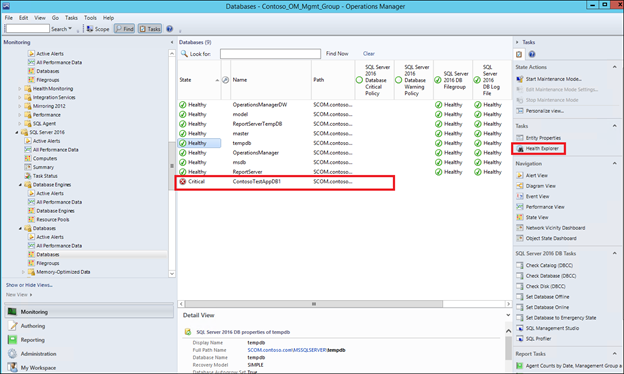
You can also double-click where it says 'Critical' to go to health explorer, or alternatively, right-click and access health explorer via the flash-out menu:
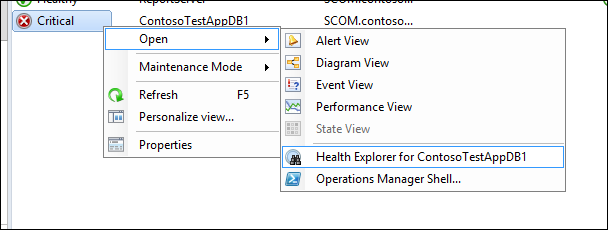
This will show the monitors that determine the health of the object you were looking at in the previous view. Click on the monitor that shows as Red and then click on 'State Change Events' :
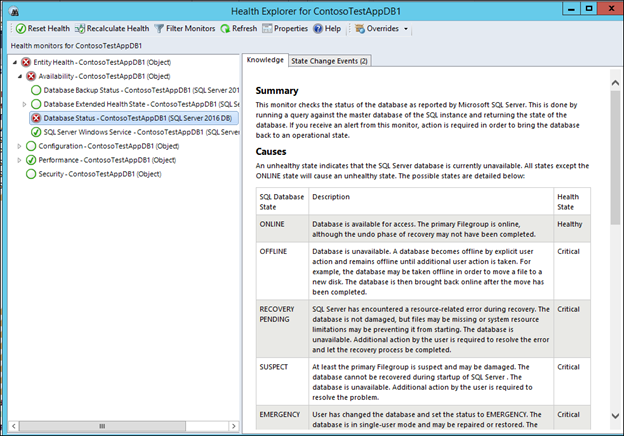
This will show when and what triggered the monitor to go into a red state:
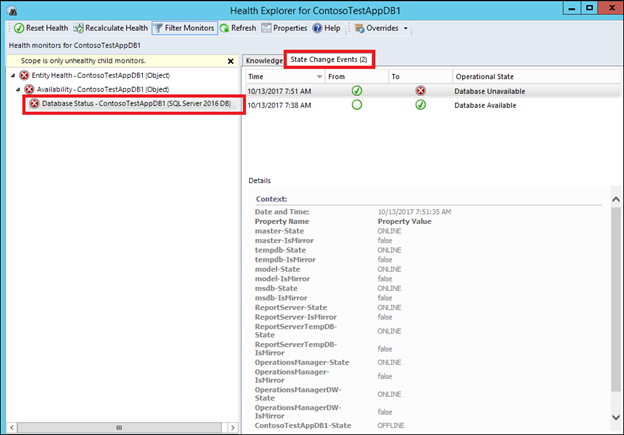
In the above example, if we look in the SQL active alerts View, there is also an alert indicating this problem:
NOTE: This alert will also be visible in the top level 'Active alerts' view which displays all new alerts, regardless of the management pack that it comes from:
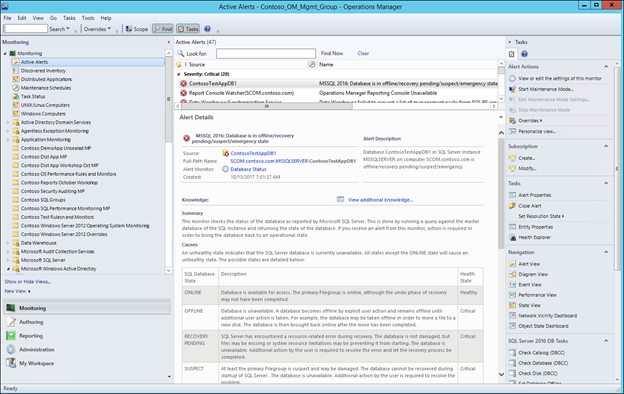
In this case, there is a task available (visible either in the alert view or state view) that will resolve the problem:
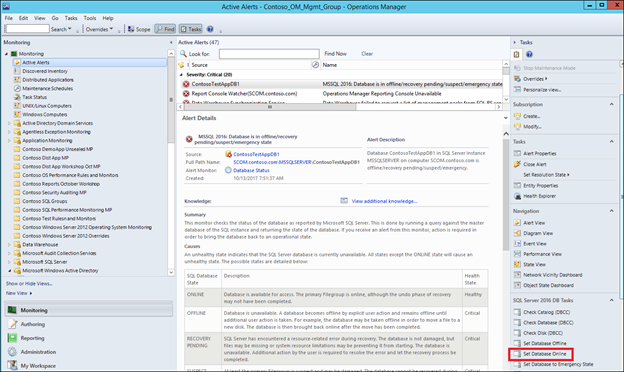
The Task will run to set the DB online:
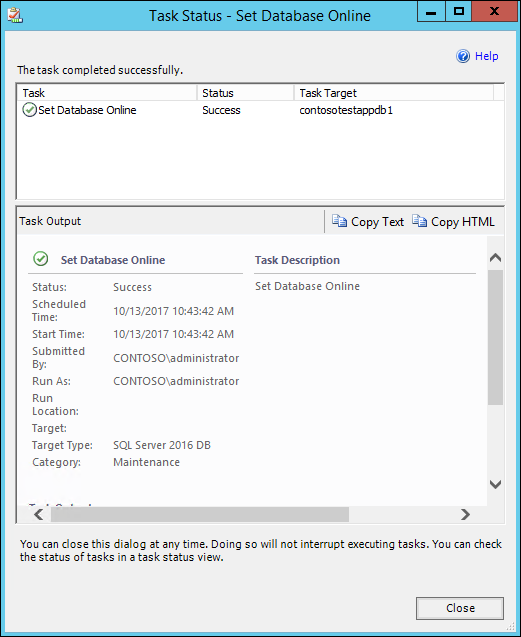
The Task output will indicate if the task completed successfully:
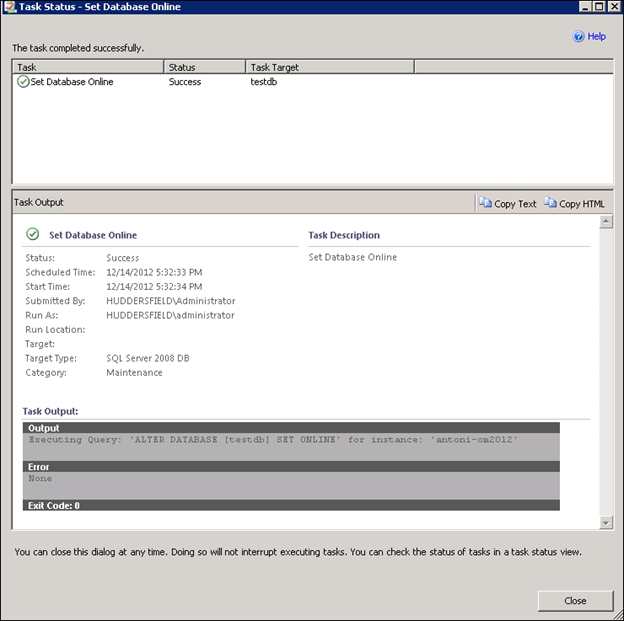
In SQL, the DB shows as online again, and after Operations Manager detects the online state of the DB (hourly by default), the State of the DB will change back to green in Operations Manager and the alert will get automatically resolved and disappear from the active alerts view:
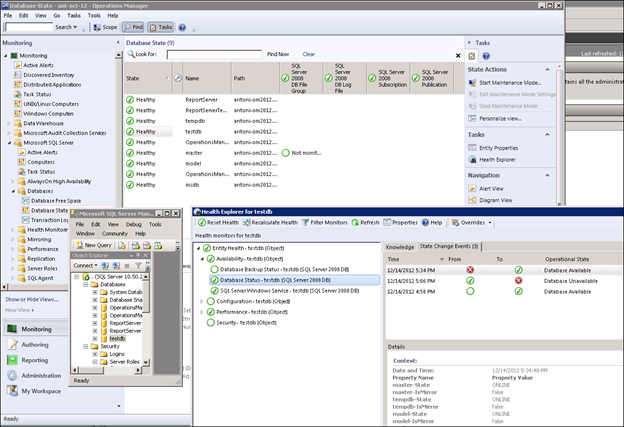
Note there is a new feature since SCOM 2012, in that healthy monitors will only show by default, until you close the 'Scope is only unhealthy child monitors' filter bar:

This was introduced to make the health explorer view render more rapidly, by only displaying monitors that are in an unhealthy state. Clicking the X will allow viewing of all monitors targeted to the object, regardless of their current state:
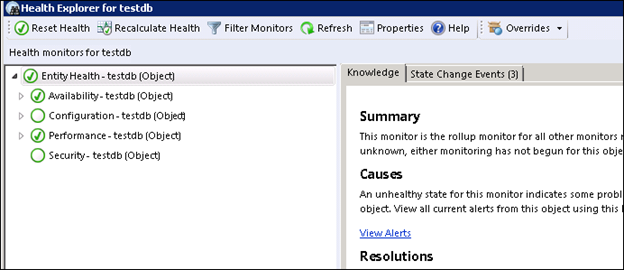
NOTE: Any comments and feedback greatly appreciated if you found this post helpful or have any corrections / suggestions. Cheers, Antoni